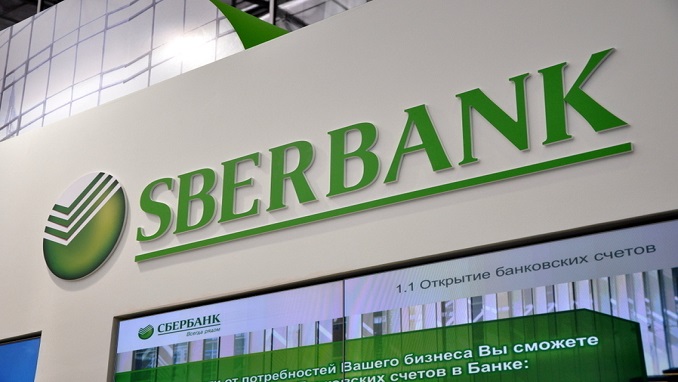Sanctions act like a global-capital quarantine. And Russia runs a biggish current-account surplus.
制裁就像是全球資本隔離一樣。俄羅斯擁有較大的經(jīng)常賬戶盈余。
But Russia is a more hazardous place for equity investors. A stock ought to be a claim on a company's assets.
但對(duì)權(quán)益投資者而言,俄羅斯是一個(gè)更加危險(xiǎn)的地方。股票應(yīng)該是對(duì)公司資產(chǎn)的一份聲明。
A quick survey of modern history throws up reasons to doubt that such claims are secure.
對(duì)現(xiàn)代歷史的快速調(diào)查讓我們有理由懷疑這些聲明是否可靠。
In 2003-04 the state seized Yukos, a giant oil company.
在2003年到2004年,政府接管了一家大型石油公司—尤科斯。
More recently a dispute over oil assets between Rosneft, the statebacked firm that absorbed Yukos's assets,
近期收購(gòu)尤科斯資產(chǎn)的國(guó)有公司俄羅斯石油公司和一家大型企業(yè)集團(tuán)Sistema
and Sistema, a big conglomerate, rattled investors and gutted Sistema's share price.
因石油資產(chǎn)產(chǎn)生爭(zhēng)端,投資者因而驚慌失措,Sistema的股價(jià)一落千丈。
Yet for the intrepid, Russian stocks still have appeal. For a start, they are cheap.
但對(duì)于無(wú)畏的投資者來(lái)說(shuō),俄羅斯股市仍然具有吸引力。首先,它們很便宜。
MSCI's Russia index has a price-to earnings ratio of six, compared with 12 for its broader emerging-market index.
和其更廣泛的新興市場(chǎng)指數(shù)的12相比,明晟公司(MSCI)俄羅斯指數(shù)的市盈率為6.
That kind of value is bait for stockpickers, who hope to sort good long-term bets from the ones that might turn ugly.
對(duì)那些希望從可能變?cè)愀獾拈L(zhǎng)期投資中挑選出好股票的選股者而言,這種價(jià)值對(duì)他們而言是誘餌。

They cautiously avoid firms such as Gazprom, a state-owned gas producer, that are instruments of the Kremlin's strategic goals.
他們小心翼翼地避開(kāi)國(guó)有天然氣生產(chǎn)商俄羅斯天然氣工業(yè)股份公司等公司,這些公司是克里姆林宮戰(zhàn)略目標(biāo)的工具。
(American sanctions have made it unwise to hold such stocks in any event.)
(無(wú)論如何,美國(guó)的制裁使得持有這類(lèi)股票變得不明智。)
Instead they go for well-run firms with strong consumer brands,
相反,他們尋求那些擁有強(qiáng)大消費(fèi)者品牌且運(yùn)營(yíng)良好的公司
such as Sberbank, Russia's biggest bank, or Yandex, its internet-search firm.
如俄羅斯最大的銀行俄羅斯聯(lián)邦儲(chǔ)蓄銀行,或其互聯(lián)網(wǎng)搜索公司Yandex。
The state is unlikely to mess with firms on which the economy's day-to-day stability depends.
國(guó)家不太可能干預(yù)經(jīng)濟(jì)日常穩(wěn)定所依賴的公司。
Give Russia some credit, say boosters. Macro-stability is not a given.
支持者說(shuō),給俄羅斯一些信任吧。宏觀穩(wěn)定不是給定的。
Central banks have come under political attack in other emerging markets—India, South Africa and Turkey—and now in America, too.
其他新興市場(chǎng)的央行也受到了政治攻擊—印度、南非和土耳其—現(xiàn)在美國(guó)也如此。
Optimists say that plans to cut red tape and increase public investment will lift Russia's GDP growth potential.
樂(lè)觀主義者表示減少繁文縟節(jié)和增加公共投資的計(jì)劃將增加俄羅斯GDP增長(zhǎng)潛力。
Still, for the unwary investor, Russia is a snare. Even old hands can be caught out.
不過(guò),對(duì)于粗心的投資者來(lái)說(shuō),俄羅斯是個(gè)陷阱。即使是老手也會(huì)遭遇不測(cè)情況。
Michael Calvey, the American boss of Baring Vostok, a private-equity firm,
私人股本公司Baring Vostok的美國(guó)老板Michael Calvey
was arrested in February amid a conflict with an investment partner who has connections to the security services.
因與一名和安全部門(mén)有關(guān)的投資伙伴發(fā)生沖突而于今年2月被捕。
Despite testimonials from the boss of Sberbank and the founder of Yandex, Mr Calvey remains under house arrest.
雖然有俄羅斯聯(lián)邦儲(chǔ)蓄銀行老板和Yandex創(chuàng)始人的證詞,但Calvey仍被軟禁。
Realists say it is the big-picture stuff that holds the economy back.
現(xiàn)實(shí)主義者表示正是全局因素阻礙了經(jīng)濟(jì)的發(fā)展。
Establishing the rule of law and property takes political will. But it takes time, too.
建立法治和財(cái)產(chǎn)制度需要政治意愿。但也需要時(shí)間。
In the early 1990s a prominent Western economist was asked how Russia could become a thriving market economy.
在20世紀(jì)90年代初期,一位杰出的西方經(jīng)濟(jì)學(xué)家被問(wèn)及俄羅斯如何能成為一個(gè)繁榮的市場(chǎng)經(jīng)濟(jì)。
His advice? "Get yourselves another history."
他的建議?“給你們自己另一段歷史。”
譯文由可可原創(chuàng),僅供學(xué)習(xí)交流使用,未經(jīng)許可請(qǐng)勿轉(zhuǎn)載。












